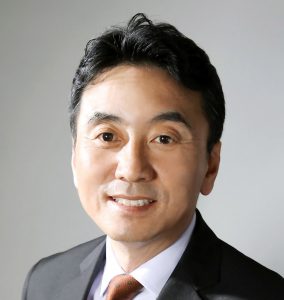Introduction
A message of gratitude
In this beautiful Toronto,
we at Toronto Precondo hope to be a support
for your household economy growth and happiness
with accurate information and prompt communication
along with you who are passionately achieving your goals.
Thank you for your continued trust and support for 20 years.
About ( including Awards )
IAN KIM
- Sales Representative
- Direct : 416-554-8949
- Bus : 416-223-3535
- Email : ian@torontoprecondo.ca
- Full member of TREB, OREA, CREA
- Landscape Architect (Korea)
- Graduated from Sungkyunkwan University Department of Landscape Architecture and Hanyang University Graduate School of Environmental Studies
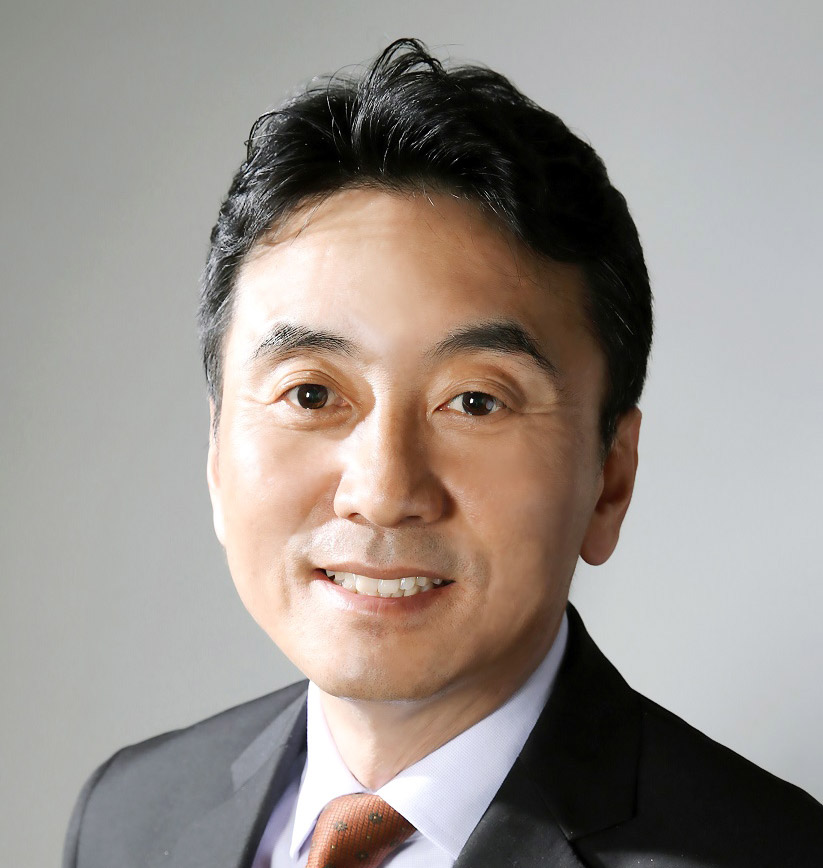
- IAN KIM is
- As a Platinum Agent for multiple construction companies, Ian Kim is the first to participate in new construction projects and offers safe contracts at the most affordable prices to his clients.
- Ian Kim provides services with trust only from contract signing to final closing as a team consisting of not only construction companies but also carefully selected lawyers, mortgage specialists, construction companies, and professional staging related to him.
- 2022, Top(#1) Producer Award Winner ( Royal Lepage New Concept )
- 2021, Top(#1) Producer Award Winner ( Royal Lepage New Concept )
- 2020, Top(#1) Producer Award Winner ( Royal Lepage New Concept )
- 2019, Top(#1) Producer Award Winner ( Royal Lepage New Concept )
- 2018, Top(#1) Producer Award Winner ( Royal Lepage New Concept )
- 2017, Top(#2) Producer Award Winner( Royal Lepage New Concept )
- 2016, Top(#2) Producer Award Winner ( Royal Lepage New Concept )
- 2015, Top(#1) Performer Award Winner ( Royal Lepage New Concept )
- 2006 Korean Customer Satisfaction Management Award Winner ( The Korea Times Daily, Herald Economy, Korea Economic Newspaper )
- 2006, Top(#2) Producer Award Winner ( Sutton Group Summit Realty )
- 2005, Top(#2) Producer Award Winner ( Sutton Group Summit Realty )
“Real estate (condo pre-sale) investment plan, immigration, and study abroad (planned) families are strongly recommended to consult with us!”
Awards and Press Releases
Loyal LePage : IAN KIM
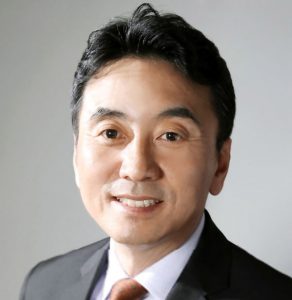
Kim Il-bong, who has been in charge of the company’s Top #1 position for five years, is a giant in the Korean real estate industry.
He judged that the Korean real estate industry was saturated and turned his attention to Korean immigrants and pre-sales, where he is evaluated as the number one player in that area.
What Kim emphasizes is ‘trust’ between both parties that prioritizes the customer’s interests.
He never misses the top spot every year, but last year was not an easy time for him either.
Kim said, “The part I was most concerned about when the real estate market showed a sluggish mood was to make sure that customers could approach the real estate market comfortably,” and “I advised many customers to wait for the right time even if they planned to trade due to anxiety.”
He said, “After working as a broker for more than 20 years, I can see the flow of the market to some extent,” and “Toronto is a city where immigrants with relatively abundant funds are concentrated and it is the place where it recovers fastest from an economic crisis. I focused on sharing this fact with customers through professional data analysis and relieving their anxiety.”
He advised that this year is “the time of opportunity.” Kim said, “It’s hard to predict the exact timing, but I believe that this year will rebound in mood,” and explained that “this year could be a good time for people considering buying a house.”
Kim Il-bong came to Canada in 2001 and operated an office as a landscape architect in Korea. He started working as a broker in 2002 and has a family with his wife, son who walks the same path as a broker, and daughter who is not yet married. He played folk and classical music when he was young and still enjoys playing guitar and singing at home.
Royal LePage : IAN KIM




Kim Il-bong (pictured) was named the best real estate agent of the year. Kim, who is visiting Korea, said, “I thank my customers who have supported me with unwavering trust for the past 20 years. I will do my best to help each household economy in difficult real estate markets.” Kim Hyun-jae was ranked second, Lisa Lee was ranked third, and Terry Jung was ranked fourth. Representative Jo said, “I thank all the Korean compatriots who have supported us so far and wish everyone good luck in the new year,” and emphasized that “we purchased land in MacLeod’s vision as a construction vision. It will be the top priority project next year.” The Toronto Korean Investors Club (NCIC: Chairman Jo Jun-sang) has purchased 2.41 acres of land in this area. It is located near Highway 401 and TTC Line, making it convenient for transportation, and is rated as the best location with Scarborough Town Center nearby. This is the largest project in Korean society history with a total project cost of $1 billion located southwest of Highway 401 and MacLeod Road. Condominium towers and commercial complex buildings will be built sequentially here.
Royal LePage : IAN KIM




Broker Kim Il-bong took the first place in real estate brokerage performance at Royal Lepage. He is a veteran who has held on to his top position for 4 years. In particular, it is famous for having many Korean customers and sales customers.
He said of 2021, “It was difficult to meet customers in person because of the corona, but I gave encouraging words to customers who were psychologically intimidated. He recalled that the Toronto real estate market was alive and actively tried to publicize the fact that this crisis could be a better opportunity.”
The point of his sales strategy is ‘unconditionally, customer profit first’. “He boldly shouts ‘NO’ if it is not for the benefit of the customer. “His candid statements are based on the confidence gained from 20 years of professional experience,” said colleagues around him.
“Toronto real estate is structurally irreversible. There is no concept of so-called “topknot” here. Because of such solid experience and belief, those who delay the purchase of a house, those who can afford to purchase a house in a good location, but are looking for a cheap unit in the outskirts with relatively low investment value, and those who want to spend their time renting instead of buying, it is wrong speak directly If he thinks it is unfavorable to a guest, he will tell you honestly and firmly, even if he misses that guest.”
He believes that the ideal relationship between a customer and a broker is a ‘partner who moves together for the common good’. A broker is a person who manages all the property of a family, so if he does something wrong, he can ruin a family. Because of this, he said, “Brokers have to whip themselves with a heavy sense of responsibility and constantly study. He emphasized that he should always be soaked in various areas such as finance, mortgages, and school districts.” Even in 2022, he advised, “waiting” is not a good idea.
He said, “Starting this year, mortgage interest rates will also rise, and there will be several government efforts to control inflation. But waiting to buy when house prices drop is not a very good idea. Also, the idea of selling the house first and then waiting to buy it when the price drops is also risky.” His honest words are expected to continue into the new year.
Broker Kim Il-bong, who came to Canada in 2001, ran a landscaping engineer’s office in Korea. He started working as a broker in 2002, and his family includes a son and a daughter who are still unmarried. He played folk and classical music as a young man and still enjoys playing guitar and singing at home.


Kim Il-bong has risen to the best broker of Royal LePage New Concept Korean real estate this year. The second place is Kim Hyun-jae.
Kim Il-bong has been keeping the best broker position since 2018. When asked about the secret, he said, “Based on my long experience as a broker, I tell customers what is most beneficial to them and push it forward if they think it’s right. Real estate in the Toronto area is structurally short of supply but high in demand, so prices are rising. It always comes with good results from a long-term perspective.”


According to a report by The Korea Times Daily, Home Life Frontier (represented by Yoo Woong-bok) has corrected the ranking of real estate agents reported by Korea Ilbo on the 1st. The calculation became complicated when they closed the real estate transaction revenue of more than 400 affiliated agents as of the 29th and added up the expected income for the 30th and 31st. Contrary to the report, the top performer of this company is Choi Yun-hyun. Jo Hyun-jin is second. The ranking of Royal Re Page New Concept (represented by Jo Jun-sang) remains unchanged
Kim Il-bong and Choi Yun-hyun, who were the top performers in both companies in 2020, have nothing special as a success factor that Korea Ilbo has obtained from them contrary to expectations
Choi Yun-hyun (40), who entered the real estate industry in 2003, said that “the secret to success that I have obtained with a heart that does my best for 17 years while promoting myself as a ‘licensed real estate agent’ with a human scent is that I am training capable intermediaries and my goal is to become a ‘real estate developer’ in the future”. He became a licensed real estate agent in 2006 and won the Rookie Award. He was selected as a top agent for six times in total for his affiliated agency in 2007-2008, 2015-2016, and 2018 including 2020
Kim Il-bong, who is visiting Korea for business, said in an SNS interview with Korea Ilbo that “I am grateful to customers who provided ‘customized information’ to Korean and Canadian customers while operating Toronto real estate website torontoprecondo.ca for 17 years” and humbly said that it was not a special secret but just made a website and worked hard for customer benefits
Kim has been selected as Royal Re Page New Concept’s top salesman for three consecutive years since 2018
Regarding this year’s Toronto real estate outlook, Choi predicted that “the average real estate price will continue to rise due to temporary suburban popularity due to Corona, and downtown condo market will also recover rapidly after Corona”
The exact amount of performance and transaction volume achieved by these two companies’ top performers has not been disclosed, but their approximate total income is between $780,000 and $1 million, and their transaction volume is known to be between 60 and 80 transactions
Korea Ilbo Korea Daily plans to continue reporting on sales know-how and real estate prospects of Korean real estate companies active in Toronto through interviews with Korean real estate companies active in Toronto.



17 years of experience with Royal LePage Korean Real Estate…Turning a crisis into an opportunity
Kim Il-bong is a real estate agent who works for Royal LePage Korean Real Estate in Toronto, Canada. He has been in the real estate business for 17 years. He was awarded for his outstanding performance as a salesperson at the Royal LePage Korean Real Estate year-end party in December 2019. Kim Il-bong has been able to maintain his position as the top salesperson for two consecutive years by building trust with his customers through communication
Kim Il-bong started his career as a real estate agent in 2002 after immigrating to Canada in 2001. He faced many challenges such as language barriers and fierce competition. However, he turned these challenges into opportunities by focusing on people who were planning to immigrate to Canada and providing them with various information through seminars. He also runs his own website, torontoprecondo.ca, where he provides up-to-date information on real estate news and new properties
Kim Il-bong believes that quick decision-making and selection are important in the current real estate market in Toronto. He emphasizes that while the population of Toronto continues to grow, housing prices will continue to rise at a higher rate. Therefore, he believes that it is important to choose a professional real estate agent who has expertise, experience, reputation, and can truly represent the interests of customers
When asked how to choose a good real estate agent, Kim Il-bong replied that “it’s trust”.



Royal Lepage Korean Real Estate (Representative Jo Jun-sang) held a year-end party at the Silver Lake Golf Course banquet hall on Friday, December 6th. On this day, the attendees celebrated the company’s achievements over the past year and pledged to work together for greater leaps forward in the future. The event featured an awards ceremony for top-performing brokers, various performances, and prize draws. This year’s top producer was Kim Il-bong.




Kim Il-bong is a Royal Lepage New Concept Korean Real Estate agent who was awarded the highest salesperson of the year in 2018 at a Royal Lepage New Concept Korean Real Estate year-end party
He has been working in real estate since 2002 and has been holding annual Canadian real estate investment seminars in Korea since then. He has also been operating an internet homepage (www.torontoprecondo.ca) where he provides a lot of information to real estate investors and end-users
He recently introduced that he had achieved the best performance in condo sales for the past three years. He said that despite the poor real estate market this year compared to last year, he was able to win a meaningful award because he steadily built trust by communicating with customers
He also promised to work harder to provide more real estate information faster to customers.
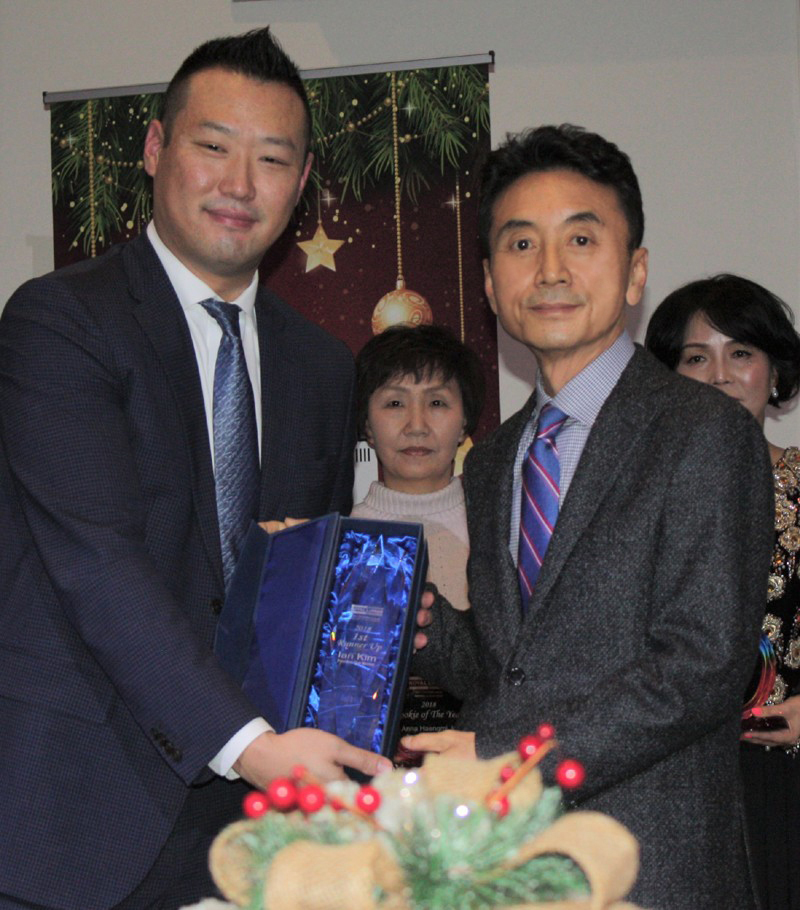

About 500 people attended the event including Korean and non-Korean real estate agents, large construction companies, politicians, etc., who pledged to work together for greater leaps forward in the future.
Royal LePage Korean Real Estate’s year-end party was held successfully at Fontana Primavera Event Center in Vaughan on December 30th. About 500 people attended the event including Korean and non-Korean real estate agents, large construction companies, politicians, etc., who congratulated Royal LePage Korean Real Estate’s development and pledged to work together for greater leaps forward in the future
The event included an award ceremony for real estate agents who achieved major performance this year, various performances, prize draws with various products such as airline tickets and large high-definition TVs, etc
In particular, politicians such as Stan Cho MPP who was invited by Chongjin Jo (Richard), a manager (lawyer) of Royal LePage, and Rod Phillips, Minister of Environment for Ontario visited the event
Junsang Jo, CEO of Royal LePage Korean Real Estate said, ‘Thank you to all the Korean compatriots who have supported us so far. I wish you all a happy Christmas and a new year that will be the best year ever with health and good luck in every home.
Kim Il-bong was promoted to Royal LePage Korean Real Estate’s top producer this year. Kim said, ‘I am grateful to customers who have sent constant trust for the past 17 years and will continue to strive to be helpful with more accurate and prompt information.
Meanwhile, Air Canada airline tickets ($2,000 worth) provided by real estate development company CentreCourt were won by Tae-hee Kim of Royal LePage.
■ * Last year, 928,667 houses were sold… and the average price increased by 8.4% to $566,726↑
Ian Kim
Last year, a total of 92,867 homes were sold in the Greater Toronto Area (GTA), which is close to the all-time high record. It fell short by only 326 houses compared to the previous record of 93,193 homes sold in 2007.
The average selling price for homes last year was $566,726, an 8.4% increase from $523,036 in 2013 (87,111 homes sold). The shortage of housing stock and historically low mortgage rates have contributed to the increase in house prices. In 2007, the average home price for the year was $376,236.
The Toronto Real Estate Board (TREB) points to a lack of inventory as the primary reason for the sharp increase in housing prices. They also attribute the rise to the low mortgage rates.
The factors that are driving the strength of the housing market are expected to continue to impact the market in the coming year, with the anticipated interest rate hike in the latter half of the year acting as one variable.
Some have already suggested that the Toronto market is beginning to cool due to the lack of inventory. Additionally, many people are turning to the 905 area to avoid Toronto’s high land transfer taxes and the cost of maintaining property.
In relation to this, Kim Il-bong, from Royal LePage Korean Realty, said that “Korean customers do not usually consider moving to the suburbs due to their preference for convenient transportation.” He also mentioned that “if funds are limited, they will reduce the size of their home or consider different types of housing, such as townhouses or condos.”
Kim added that “since oil prices have dropped and inflation has gone down, it is difficult to raise interest rates. With an influx of 100,000 people to the GTA every year, demand is supported. If the supply doesn’t exceed the demand too much, we can expect steady increases in home prices.”
Park Ki-ho, from Remax Real Estate, said that “although some are concerned about interest rate hikes in the latter half of the year, the increase will be gradual, so the impact will be minimal.” He also stated that “those who have the means to buy a house do not consider Toronto’s high land transfer taxes. Furthermore, the GTA housing market will continue to thrive this year.”
According to TREB, the average selling price in the GTA for December was $556,602 (4,446 homes sold), a 7% increase compared to $521,890 (4,058 homes sold) in the same period in 2013.
In the case of detached homes, the average price increased by 7.7% to $738,334 (416 regions: $934,039, up 8%, 905 regions: $668,063, up 6.6%). Semi-detached homes rose 0.9% to $502,539 ($615,794, down 4.4%, $451,314, up 9.9%), while townhouses increased by 8.3% to $434,182 ($474,874, up 5.9%, $420,105, up 9.4%), Condominium rose 5.4% to $362,758($387,612 up 5.4%, $300,352 up 2.2%).
|
Special series – Notable real estate agent
“Assisting the immigrant life to be happy is the duty of a real estate agent.”
“Trust with customers is the most important”… Mr. Kim Il-bong, a specialist in landscaping. Mr. Kim Il-bong (Ian Kim), who belongs to 21st Century Korean Real Estate (Representative Jo Jun-sang), places ‘trust’ as the most important value as a real estate agent. He introduces himself as a person with a technical qualification in landscape architecture who worked for a related company in Korea before obtaining his own license and starting his own office, ‘Out Design Technical Office’, from scratch. He had been running a solid business, with annual sales growth of over 200%. However, he yearned for a new challenge. 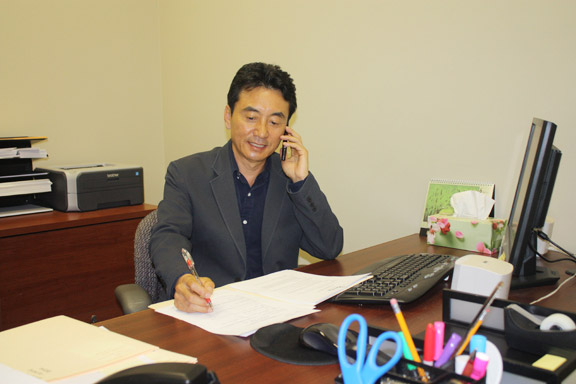  “Bold challenges lead to success…forget quickly what needs to be forgotten.”
“I decided that to start my second life, it was best to leave Korea and clear up everything that I had left behind. I even closed all my bank accounts. I believed that by doing so, I would be able to avoid becoming complacent in my new life abroad and move forward with a fresh start without any expectations.” “At first, there wasn’t much reaction, but after about a year, the number of people showing interest started to increase. Since then, we have been organizing seminars in Korea once or twice a year to personally introduce the current situation in Canada and provide individual consultations. With good performance, we even ranked second (at Sutton Group) in 2006.” It was a time after 2002 when Koreans showed great interest in immigrating to Canada. They might have enjoyed what is commonly known as the “immigration boom.” Thanks to him, who is planning another business trip to Korea at the end of this year, he is a Canadian-Korean real estate agent who is better known within Korea than here. “I am planning to visit Korea this year as well. The number of Korean immigrants has significantly decreased recently. However, what’s interesting is that the percentage of customers who approach me after the seminars remains consistent, compared to the booming period of immigration. So, I guess I’ve become a believer in probability (laughs). And because I have been doing this every year, it seems that my recognition within Korea has increased a bit. I had opportunities to report Canadian news to Korea as a local correspondent and even appeared on real estate-focused broadcasting stations for interviews. Although the scale of Korean immigration has decreased recently, I feel a sense of responsibility to provide the necessary basis for making informed decisions for successful settlement, so I cannot easily quit this job.” He added that due to misguided initial judgments during the settlement process, people waste a long time or in severe cases, even experience a reverse migration. He emphasized the importance of understanding the economic structure, society, and culture differences between Korea and Canada, as only with a clear understanding can one truly find comfort in their second life in Canada. “When I talk to customers, many of them seem to understand but still have doubts. It’s unfortunate. If you don’t have a clear understanding of the situation here, you may face significant difficulties in settling down, and there are indeed many such examples.” “Immigration, recognizing the correct status is the most important.
  He said that while real estate prices are showing steady growth, there is no bubble interpretation as real estate prices are increasing at a level similar to the inflation rate. “So do you think real estate prices will just continue to rise?” “Looking at recent price increases, it seems like it’s suffocating. I think the government’s mortgage regulation measures were taken at the right time. It seems clear that it’s time for price adjustments or period adjustments to curb the upward trend, but since real estate should be viewed in the long term, I still see the market positively. I also invest in it. If there is no 4% price increase even in real estate, the real rate of return on investment will increase by 0%, and the real estate price, which is linked to the inflation rate, will move accordingly.” |
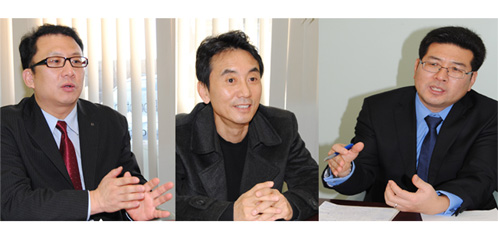

The year 2012 has dawned. In the year of the dragon, Koreans are filled with vitality and hope that all households will be filled with happiness. Korean financial experts predict that there will be many variables in the first half of the year due to the continuing uncertainty of the European economy and the political situation in North Korea, but they expect stable growth in the second half of the year. The real estate market is expected to remain active with the low interest rates sustained throughout the year.
Participants: Woobong Sun, Branch Manager of Shinhan Bank, Jongho Son, Deputy Manager of TD Bank, and Ilbong Kim, 21st Century Korean Real Estate.
Location: Canadian Korean Meeting Room
Date and Time: December 23, 2011 (Friday), 3-5 pm
Moderator: Hyotaek Kim, Director
How is the economy looking for the New Year in 2011?
▲ Son: It would be great if there is positive news and all areas are doing well, but the overall outlook is a scenario where the first half of the year is difficult and the second half slowly recovers. We need to see the end of the European financial crisis, but we cannot expect it until the first quarter. The major countries, including the United States, are expected to have a growth rate of around 2% due to the impact of Europe. Canada is forecasting a poor growth rate of 1.7%. Although a downturn is possible if the situation in Europe worsens, we do not give it much weight. The stock market fell more than 10% this year due to falling commodity prices, and the export conditions for Canada are not favorable. If Europe’s economy continues to decline, the European Central Bank may lower interest rates by 0.5% in the first quarter of the new year, with a possible total reduction of 1% for the year. The situation can be avoided if countries like the UK and Germany take an active role.
▲Woo: The big problem is when unexpected events suddenly occur, but we can handle known issues related to Europe. In 2009, the worst liquidity crisis in the United States occurred, but we went through a 13-month adjustment period. Housing prices in the US have risen in major states, and sales have increased. There are green lights such as a rise in employment and a decrease in unemployment claims. It may not be a boom, but if the US recovers, it will lead the world economy, and Canada will also benefit. The Korean economy has followed the trend of commodities and gold so far, and it is not currently bad. The Korean economy is reflected in the last stage. Finance and manufacturing are improving, and if the European crisis is resolved, the New Year’s economy will be positive.
▲ Son: We cannot expect a prosperous time like before, and growth will continue at a lower level for a while. Canada is heavily influenced by commodities, and it will improve along with the global economy.
What are the new year prospects for the convenience store, laundry, food, study abroad, and travel industries, which are the most common in the Korean community?
▲Woo: In terms of convenience store operations, if you analyze cash flow, those in the city are at a survival level, and they keep moving to the outskirts to avoid competition. Laundry businesses are often sold due to environmental regulations, and food service operators are feeling the burden of operating in a highly competitive market. The study abroad industry is also struggling as the number of international students continues to decline. In previous years, the number of incoming international students was between 15,000 to 18,000 per year, but in 2011, it decreased to around 10,000. As a result, the travel industry, which is linked to it, is also weak, and the new year will not be an exception.
▲Son: It is often said that the revenue of Korean-owned businesses in the main industries has decreased. Anxiety about the future makes it difficult for Korean businesses to spend money. They complain that stockpiles are increasing because people do not come to pick up their clothes from the laundry. Restaurants and study abroad schools need many visitors to thrive. Investing in the condo market to earn money is also reducing their ability to manage cash flow.
What is the direction of interest rates for the new year?
▲Woo: Bank of Canada Governor Mark Carney has expressed his intention to maintain interest rates until the end of next year. Although the inflation rate has exceeded the control line due to the high oil prices, they are keeping the interest rate stable and implementing other currency policies. The current 1% benchmark rate and 3% preferential rate will remain unchanged in the new year.
▲Son: The United States has announced that it will not raise interest rates until the summer of 2013. Other countries will follow this pattern. Interest rates will need to stay the same for the beginning of 2013 before they can be raised.
▲Woo: Tightening policies are being implemented to fill the fiscal deficit, and this will cause consumption to weaken. As a result, the factors that contribute to inflation are also weakening. Views on China are mixed, and there is an expectation that the new year will be difficult. If Europe and China both slump, even Canada, which has been stable, will face difficulties due to external factors.
What are the exchange rates of the Canadian dollar (Loonie) against the US dollar and Korean won?
▲Woo: A strong US dollar is expected. If Obama is re-elected, he will need to show his economic leadership, so he will pursue a strong dollar policy. The Canadian dollar is expected to move between 90 and 95 US cents. The won exchange rate is difficult to predict at this time. We do not know what will happen with North Korea, and it is impossible to determine the level of US nuclear response. It may be possible to make a prediction after six months.
▲Son: The new year’s economy may be chaotic. The anxiety in Europe and growth restrictions in North America and developing countries may cause uncertainty.
What’s the outlook for the national real estate market?
▲ Kim: The GTA housing market was quite good in 2011. House prices rose by 7% compared to the previous year. Despite concerns about a bubble in the financial industry, the industry expects a rise of about 5% in the new year. Considering that the average domestic inflation rate is 3% and property tax is an average of 1%, homeowners need to see an increase of at least 4% to maintain their status quo. Essentially, since the interest rate is much lower than the inflation rate, capital is being transferred from finance to real estate. Immigrants are coming to the GTA at a rate of 80,000 per year. It is the most active area in North America for construction. Although the US is not doing well, the Canadian economy is not closely tied to it, contrary to popular belief. Especially, the financial system is completely different. The US has gone too far with capitalism, while Canada has consistently advocated for socialist capitalism. Unless there is a significant external influence like the Lehman crisis three years ago, the real estate market will continue to grow steadily.
▲ Son: There is a lot of talk about the housing market being overvalued by about 10%. It’s not something that will have an immediate impact, but when you consider income, rent, mortgage, and repayment ability in relation to the price, it’s true. As summer approaches, regional characteristics will become more apparent. Chinese and other foreign buyers are flocking to downtown areas such as North York. They have accumulated wealth by investing in real estate in their homeland over the past few years, and now they are turning their attention overseas because China only allows one house per household.
▲ Kim: They are also buying a lot of real estate in India and the Middle East. Although Korea is influenced by national policies that affect real estate, there is a phenomenon where house prices can plummet if they shake once, but this is not the case here in Canada, as long as there are no major external factors.
What about Korean capital inflows?
▲ Woo: Korean corporate investment in Canada is entirely dependent on the exchange rate of the won. If the won depreciates due to uncertainty over the North Korean situation, it will be difficult to attract investment.
▲ Kim: Financial institutions have traditionally given negative forecasts every year for the Toronto real estate market over the past decade, but the results have always risen steadily to a reasonable level each year. Last year, financial institutions even hesitated to say that it was a bubble, reaching up to 20%, but the result was a solid 7% increase in the opposite direction. The Toronto market is formed by demand and supply from real demanders, so the possibility of a bubble is very low. Due to the negative real estate predictions made by financial institutions every year, real estate buyers have been reluctant to sell, but this has led to a shortage of supply and an increase in prices. This year, we need to focus on how to increase supply.
Many customers in Korea are inquiring about Canadian real estate. They are asking if they can invest here and make a large profit, as the Korean market is stagnant. It would be great to gather investors and build a high-rise condo. In the United States, there is little price adjustment in Manhattan, where the core industries are concentrated. Similarly, Toronto, the economic capital of Canada, is at the center, and it is natural that this place will become Canada’s Manhattan.
▲ Son: The customer mentioned that investment inflows are highest when the exchange rate is good and tend to increase when there is political instability in Korea. They believe that a group that can develop ideas to attract Korean capital in the new year is needed. With a large Korean population and high awareness of mainstream society, they think they have the ability and conditions to attempt big projects. They are looking forward to good news that will activate the Korean economy.
| Korean experts predict that the market will continue to be strong due to the decline in mortgage rates. | |
|
This year, the housing market in the Greater Toronto Area (GTA) surpassed the experts’ expectations and achieved a record-breaking performance. In particular, condo sales reached a new high that exceeded existing home sales. Home prices rose a whopping 11%, far surpassing the level that real estate professionals had anticipated. The question remains whether this boom will continue into the new year. Korean real estate experts predict that “the housing market will continue to be strong next year with the expected decline in mortgage rates,” but “the Korean real estate market may be somewhat sluggish due to differences in exchange rates.” |
| date : 2005/09/12 [E6] | |
|
Foreign real estate properties targeting domestic investors are flooding the market. The direct cause is the relaxation of overseas housing acquisition requirements (increasing the purchase limit from 300,000 to 500,000 dollars) implemented from July, but the August 31 real estate policy is providing another reason. Most of the products related to housing are intended to attract investor funds that have been tightly bound by strong real estate policies. |
Leaving behind the turbulent year of 2004, a new year has begun. Last year was recorded as a year of prosperity for the domestic economy and real estate market, but it seems that the Korean American community’s economy was not as bright. Bonbo News heard predictions for the 2005 economy and real estate market through economic and real estate experts.
▲ Attendees: Lee Jeong-deok, Planning Director of KEB Hana Bank, Cho Hyun-cheol, Manager of Montreal Bank, Hong Seong-ik, Manager of Royal Bank, Kim Kyung-tae, Argosy Financial Advisor, Kim Il-bong, Sutton Real Estate, Park Ki-beom, C21 Real Estate
▲ Society and Summary: Kim Hyo-tae, Reporter
▲ Location: 11th floor conference room, KEB Hana Bank Headquarters
▲ Date and Time: November 24, 2004, 5:00 pm to 8:00 pm
▲ Host: First, please give us your prediction on the interest rate in 2005 and explain which is more advantageous between fixed and variable mortgages.
▶ Lee Jung-deok: Canada’s economic policy tends to react sensitively to the US, and the US economy should be viewed as hitting the bottom and rising. In the new year, interest rates will increase by 0.25-0.5% from the current rate, and the prime rate (preferred loan rate) will be at around 5%. Generally, financial institutions prefer fixed rates in a period of falling interest rates, while customers tend to contract with variable rates. Of course, their preferences are reversed during the rising period. If you sign a 5-year fixed-rate mortgage, the prime rate as of the end of 2005 will be around 7%. Although some discounts may apply, variable mortgages are considered more profitable, assuming a rate of 5.25%.
▶ Cho Hyun-cheol: Each bank determines the prime rate based on the central bank’s benchmark interest rate adjustment, which is generally set 1.75% higher than the benchmark rate. Our bank sees the prime rate at around 5.5% at the end of 2005. From the bank’s perspective, tying the mortgage for the long term is advantageous in terms of securing customers, but ultimately, customers make their own judgments after considering risk levels, etc. Analyzing trends over about 10 years, it was more advantageous to have a variable rate. If you expect the interest rate to increase by about 1% next year, it is better to stick with the initial variable contract rather than switch to a fixed one.
▶ Kim Kyung-tae: Interest rates are actually the core of the economy. They can be classified into appropriate and actual rates, and sudden situations such as recent oil price increases or wars can drastically change underlying conditions. Interest rates can also be used as a policy tool. For example, in 1999, when the US economy was showing a strong boom, the US lowered interest rates due to concerns about inflation. Currently, domestic interest rates are at a very low level. Predicting the direction of interest rates is difficult, and countries often watch each other closely. The effects of international balance of payments are also significant. When interest rates are low, capital moves to the stock market. The central bank is emphasizing raising interest rates, and the US and Canada will likely increase them by 2% and 1-1.5%, respectively, until the end of 2005.
▶ Hong Sung-ik: I expect interest rates to rise by about 1% in the next year. We can also anticipate some economic contraction when we consider that 80% of our exports are dependent on the US. The consumer price index is unlikely to rise much as gasoline prices stabilize. The problem lies in where to place policy emphasis. It is better to sign a mortgage contract with a variable rate. Usually, it takes one year for the interest rate to increase by 1%, and it takes at least two years to make up for the difference between a 5-year fixed-rate mortgage and a variable rate mortgage of 1.5-1.75%. Fixed interest rates require paying higher rates in advance, and interest rates may also decrease after two years, so variable rates are recommended. According to economic experts, based on past performance, variable rates are considered more advantageous about 80% of the time.
▲ Host: What is the outlook for the Canadian dollar (loonie) against the US dollar or the Korean won?
▶ Jo Hyun-cheol: Most immigrants are concerned about when to send their won to Canada, when to settle their homes in Korea, and when to buy new homes or open businesses here. The exchange rate for the Canadian dollar against the won, which was in the 840-won range last year, has now risen to the 920-won range. On the other hand, the exchange rate for the won against the US dollar has fallen below the 1,100-won range. In such cases, it can be one way to keep a US dollar account and change it to the Canadian dollar when the opposite phenomenon occurs. This is because the impact of the exchange rate is greater than that of interest rates. In 2005, the US dollar will be worth about 1,075 won and 1.2 dollars for the loonie. This means that the loonie will be worth 83 cents for the US dollar.
▶ Kim Kyung-tae: The exchange rate is a barometer of the economy. If the economy is good, the exchange rate strengthens, and vice versa, the value falls. The biggest problem in the US can be seen as a twin deficit in current account and finance. Accordingly, the value of US currency is weakening. The value of the Canadian dollar has risen by nearly 30% since last year. I thought it was slightly high at the beginning of last year, but it has risen even more than that. This is because Canada has abundant resources, such as energy, and its economy is robust. However, I personally believe that it is overvalued. Due to the influence of oil prices, the loonie will maintain its strength, but it appears to have already reached its peak. Therefore, I predict that it will fall to around 80 cents for the US dollar by the end of the year. The exchange rate for the US dollar against the won could fall by as much as 10%, or below 1,000 won, due to US evaluation reduction policies. The Canadian dollar is expected to fall to 800 won by the end of the year.
▶ Lee Jung-deok: The exchange rate is what most Korean immigrants are interested in. I receive several inquiries about exchange rates every day, but to be honest, I can’t give a proper answer. The Canadian dollar hit bottom in early 2003 and has been on an upward trend since then, but it is difficult to get a handle on it as banks such as Scotia Bank predict it will fall to 80-83 cents for the US dollar by the end of 2005, while CIBC predicts 77 cents. For now, I think the current level is the top and it will be maintained at the current level in 2005. There are many customers who ask when is the best time to bring their property from Korea, and one way to do this is to borrow in Canadian dollars using their Korean property as collateral. This is to avoid exchange rate risks, which are greater than interest rate burdens. When the desired exchange rate level is reached, the borrower can receive the remittance.
▶ Kim Kyung-tae: The biggest question for us is always the timing of currency exchange. We recommend portfolio management as the safest option. The first strategy is to transfer half of the assets to Canadian dollars and keep the other half in Korean won. The second strategy is to protect assets through gifts or options, especially for those with larger amounts. We cannot give a definite answer like a pair of tongs.
▶ Hong Sung-ik: There is always a psychological belief that when it goes up, it will continue to rise, and vice versa when it goes down, it will continue to fall, but this belief changes repeatedly. The US government is pursuing a weak dollar policy, so the Canadian dollar is expected to maintain its strength for a while. Canada is an exporter of resources rather than finished products, so its economy is not easily shaken by environmental changes.
▲ Host: What do you think about the trends in the retail market and the business outlook of the Korean community?
▶ Park Ki-bum: They say that the Korean community’s business is very bad. Many people say that their sales have dropped by 30-40%. They say that 2004 passed without any major events, like back-to-school (starting in September). Even though employment is increasing across Canada, the Korean economy seems to be facing even greater difficulties. Large companies are doing well, but small businesses feel like they are struggling.
▶ Cho Hyun-cheol: Consumer patterns are changing. People prefer larger convenience stores. Companies selling appliances and high-tech devices are growing, but traditional-style stores will continue to struggle. Canada’s productivity strategy is to reduce staff and increase production, which doesn’t really affect Korean businesses. It seems difficult for Korean businesses to move beyond being small and self-employed.
▶ Kim Il-bong: What Koreans actually feel is that they have hit rock bottom. Of course, there are exceptions, like Korean-oriented businesses and convenience stores that cater to Koreans, which are stagnant, while Koreans who are making inroads into the mainstream market are thriving. Canada is a country where immigrants come in every year, so it would be better to tap into the markets of the Canadian, Chinese, and Indian communities, rather than competing with each other in the Korean market.
▶ Hong Sung-ik: The retail market will maintain a good state, just like it did in 2004. There won’t be any major changes in unemployment rates.
▲ Host: What direction do you think the unemployment rate and labor costs will go?
▶ Kim Kyung-tae: The unemployment rate and labor costs are also closely related to the economy. I feel a lot of discrepancy between the physical economy and indicators. In 2003 and 2004, the real estate market showed the best performance, while the convenience store industry struggled. The biggest problem in the United States is that factories are moving to China, leaving only paper companies. Since China imports domestic resources, the domestic economy will be greatly influenced by the country’s policy direction in the future. Overall, the economy was good in 2004, and it is expected to be similar in the new year. It is not just important to increase the growth rate, but it is actually better to achieve stable growth. It is a very desirable phenomenon that employment in manufacturing companies has been improving recently. In terms of the country, manufacturing industries that produce export products are more important than the retail market.
▶ Lee Jung-deok: The unemployment rate is expected to be around 7.0-7.2% next year, and labor costs are predicted to rise by about 1.5% according to the OECD report.
▲ What is your outlook for investment in 2005?
▶ Kim Kyung-tae: Investment through which one increases their assets or reduces their costs is called investment or financial management. It is also one means of protecting one’s assets from risks. Financial management methods also change depending on the direction of interest rates. Generally, investment in stocks and bonds, deposits in banks, etc. can be mentioned. In recent years, real estate investment was by far the best financial management method. Next is bonds, and the price of gold has also recorded the highest level in 10 years. Since international gold prices move opposite to the value of the US dollar, it is possible to rise a little more until the US economy stabilizes. When considering financial management, taxes and other factors should also be considered, not just the rate of return. It is expected that the stock market will perform well next year, with a return rate of over 10%. When interest rates start to rise, it is better to lean towards conservative investments such as bonds.
▲What is the housing market and real estate price trend?
▶ Kim Il-bong: Housing prices have been steadily rising for the past 10 years, and now we are experiencing some fatigue. In the new year, we will enter a time adjustment period after hitting a peak. In other words, housing prices will remain at a slightly higher level than inflation for a while. Housing always needs to be viewed from a long-term investment perspective. Long-term investment is still good, but short-term investment is not without risks. The collapse of the housing market bubble in the early 1990s was largely due to economic factors. People do not seem to think that buying houses for $300,000 or $500,000 in the Toronto area is expensive yet. This means that there is no psychological inflation, or disappointment, yet. The mortgage rate next year will fluctuate by about 1%.
▶ Park Ki-beom: The decision to buy real estate is largely influenced by one’s own experience. It can be divided into the period from 1995-2000 (first half) and the period from 2000-2005 (second half), with the increase in the second half being much larger. The investment sentiment of the Korean community in the real estate market is now excessively depressed. However, steady immigration continues, and about 40,000 homes are still needed in the Toronto area. Compared to the rise in US housing prices, Toronto has yet to reach even half. A market dominated by buyers rather than sellers is approaching. After the first quarter of 2005, the direction will be clearly visible, but for now, a price increase of 3-5% can be expected. In the past, there have been cases where house prices have fluctuated and then improved again. Large real estate companies continue to increase investment without letting up. In particular, US real estate companies buy Canadian land and develop it. Business real estate should still be viewed as a seller’s market. In the case of general housing, it is better to wait and watch for investment purposes, but if it is a house that you will continue to live in, it is believed that it should be purchased from a long-term investment perspective. Looking at the whole country, it can be divided into the western and eastern regions based on the Rocky Mountains, and Vancouver and Alberta are expected to be better than the eastern region. This is because it is an area where wealthy people in the US West can easily invest. Even if the economy worsens, construction material and labor costs do not go down, so there may be a slight adjustment period for housing prices, but there will not be excessive price declines. Condos can manage material costs to some extent by building a large number at once, but single-family homes cannot.
▶ Hong Sung-ik: The reason why the housing market crashed in the early 1990s, with 1989 as its peak, was largely due to the impact of many American factories relocating to the mainland following the North American Free Trade Agreement. At that time, the Goods and Services Tax (GST) was introduced as the tax on goods was abolished. In addition, the rise of large department stores’ Sunday business hours dealt a significant blow to convenience stores. The phrase “threw in the key” became popular at that time, as many people were unable to afford their mortgages. Owning two or three homes was the norm back then, and this led to a domino effect that caused a wave of selling. However, the current market has a structure that is focused on actual demand. While there are customers who own a home and purchase a condo for investment purposes, there are hardly any who own two or more homes, which is a phenomenon that is very different from the past. Many people missed out on opportunities by hesitating due to their past painful experiences. At that time, the 5-year fixed interest rate was around 14%, which is a vast difference from the current rate in the 5% range. The sustainability ratio also appears to be good these days, so while there may be some minor price adjustments, it is unlikely to see a significant decline. 85% of all immigrants prefer the greater Toronto area, so the new housing market still looks bright. It is not advisable to wait for a significant drop to buy a home.
2004/12/31
Locations
- • Toronto Yonge Office : 6321 Yonge Street, North York, ON, M2M 3X7 ( T: 416-223-3535, Toll Free : 1-877-449-7600 )
- • Toronto Leslie Office : 1993 Leslie Street, Toronto, ON, M3B 2M3 ( T: 416-449-7600 )
- • Mississauga Office : 257 Dundas Street E, Unit #2, Mississauga, ON, L5A 1W8 ( T: 905-624-2001 )
Customer Support Benefits of Toronto Precondo
• Before signing a contract
- Prompt email delivery of the latest real estate information (sales, assignments, resales, etc.)
- Individual phone, text, or face-to-face consultation and information delivery upon customer's request
- Customized condo and real estate recommendations tailored to each household upon customer's request
- Priority placement of desired units when assigning platinum units
• After signing a contract
- Review of documents and lawyer review upon contract signing
- Prefectly help in issuing mortgate pre-approval documents to be submitted immediately after signing the contract
- Preparation for mortgage approval upon registration
- Lawyer selection upon client's request
- Accompanying or representation when selecting interior materials and colors upon client's request
- Accompanying or representation during PDI (Pre-Delivery Inspection) upon client's request
- Assignment services
- Accompanying and explanation at occupancy or final closing upon client's request
- Renting service after move-in
- Professional sales service with professional staging when selling after registration
- Additional services applicable to each individual case


